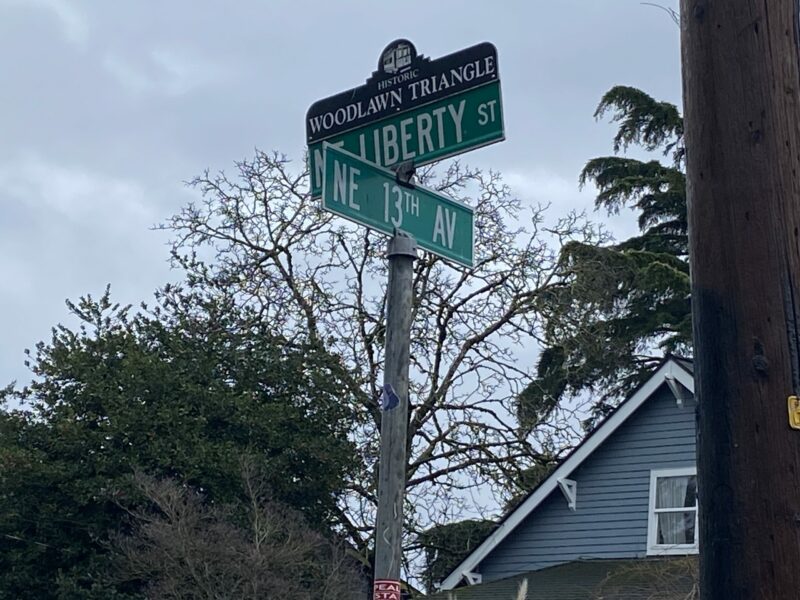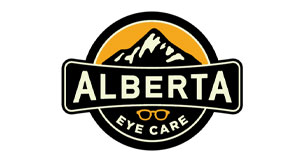Below is the text of the official bylaws of the Woodlawn Neighborhood Association last reviewed and updated in May 2014. A link to a PDF of this document with a table of contents is here: WNA Bylaws from 2014.
WNA Bylaws 2014
BYLAWS of the WOODLAWN NEIGHBORHOOD ASSOCIATION, INC.
Article I NAME
The name of this organization is the Woodlawn Neighborhood Association, Inc. (hereinafter referred
to as the “Association.”)
Article II BOUNDARIES AND OFFICES
SECTION 1. BOUNDARIES
The geographical boundaries of the Association shall be: NE Columbia Blvd. (south side) on the
north; NE 22nd Ave. (west side) on the east; NE Ainsworth St. (north side) on the south, and NE
Martin Luther King Blvd. (east side) on the west.
SECTION 2. OFFICES
The Association shall maintain in the State of Oregon a registered office and a registered agent.
The Board of Directors may, at any time, change the location of the registered office and the
person designated as the registered agent. The Association may also have other offices at such
places as the Board of Directors may fix by resolution.
Article III PURPOSES
The Association’s purposes shall be:
1) To develop and enact plans and proposals to improve the physical and/or social conditions
within the Association boundaries; and
2) To review and make recommendations on all plans and proposals developed independently
of the Association which have an impact on the physical and/or social conditions within its
boundaries.
3) To enhance the livability of the neighborhood and Portland by establishing and maintaining
communications between the neighborhood, government agencies and other non-profits and
neighborhoods.
4) To provide an open process by which all members of the neighborhood may involve themselves
in the affairs of the neighborhood.
5) To do and perform all of the activities related to said purposes, to have and enjoy all of the
powers granted, and engage in any lawful activity for which nonprofit corporations may be organized
under ORS Chapter 65.
6) For such other objectives as are approved by the Board of Directors (Board) or membership.
Article IV MEMBERSHIP
SECTION 1. QUALIFICATIONS AND ELIGIBILITY
Membership in the Association shall be open to any person 18 years or older who resides, owns
real property, owns a business or is the designated representative of any of the following located
within the neighborhood: a business, non-profit, school or church. Members must confirm
their membership in writing, and organizations designating their representatives shall submit the
name of their representative in writing.
SECTION 2. MEMBERSHIP FEES OR DUES
Page 3 of 9
WNA Bylaws 2014
There shall be no fees or dues charged for membership or voting. Any membership contributions
shall be on a voluntary basis only. Voluntary contributions will be accepted and fund raising
may be authorized by the Board.
SECTION 3. MEMBER POWERS
A membership vote is required for election of Board Directors and officers, bylaws amendments
and dissolution or merger.
Article V BOARD OF DIRECTORS
SECTION 1. NUMBER OF BOARD MEMBERS
The Board shall determine the exact numbers of Board positions annually at the meeting prior to
the annual meeting.
SECTION 2. ELIGIBILITY FOR BOARD SERVICE
Only persons eligible for membership shall be qualified to hold an elected or appointed position.
SECTION 3. TERMS OF OFFICE
Terms of office are for one (I) year. There are no term limitations for any positions within the
Board of Directors. Upon expiration of initial terms of office, a Board member may be reelected.
Terms begin at the completion of the annual meeting and last through the end of the next annual
meeting.
SECTION 4. BOARD VACANCIES
The Board may fill any vacancy on the Board by majority vote of the Board. A member appointed
to fill a vacancy shall serve the remainder of the unexpired term and until his or her successor
is elected or appointed.
SECTION 5. ELECTION OF BOARD MEMBERS
Board members shall be elected annually by a vote of the membership at the annual meeting in
October. The names of all candidates for the Board shall be self-nominated or submitted by any
member of the Association. Election requires a majority vote of the membership present. The
Board shall establish an elections process prior to the meeting at which elections take place.
SECTION 6. REMOVAL FOR NON-ATTENDANCE
Board members failing to attend three consecutive Board meetings without prior notice may be
removed from the Board by a vote of the membership.
SECTION 7. DUTIES AND POWERS OF BOARD MEMBERS
The Board of Directors shall be responsible for conducting the affairs of the Association, and for
assuring that members are informed of business that affects them through reasonable means of
notification. The Board has the responsibility of acting in the best interest of the neighborhood
but is not specifically bound to act according to the desire of the majority of members attending
a particular meeting.
The Board of Directors must conduct themselves according to the principles of the Duty of Due
Care (make reasonable decisions, act within the mission/charter, actively manage, provide financial
management and act as a non-profit corporation), Duty of Loyalty (place the interests of
the Association above one’s own, do not represent personal views as those of the Association)
and declare conflicts of interest.
Other powers of the Board include:
· Appointment of committees and/or committee chairs,
· Establishing the time and place of Board, Membership/annual meetings,
· Warning Directors for non-attendance,
· Selecting representatives to other organizations and public processes.
· Establishing a yearly work plan of priority issues and projects for maintaining and encouraging
involvement in the Association.
SECTION 8. ELECTION OF BOARD OFFICERS
Board members shall, during the annual meeting, by majority vote of the Board members
present, elect a Chair, Vice Chair, Secretary and Treasurer. In becoming elected as Officers,
these individuals also become members of the Board. The remaining Board members shall be
members-at-large.
SECTION 9. DUTIES OF BOARD OFFICERS
1) Chair: The Chair shall preside at all Board meetings and all membership meetings and shall
perform such duties as the Board and the membership from time to time authorizes. The Chair
shall represent the position of the Board and the interests of the Association.
2) Vice Chair: The Vice Chair shall perform the duties of the Chair in the Chair’s absence and as
authorized by the bylaws or regulations of the Board.
3) Secretary: The Secretary shall have the overall responsibility for all record-keeping. They
shall perform or cause to be performed the following duties: recording and maintaining minutes
of Membership and Board meetings, assisting the Chair with correspondence and maintenance
of current and accurate membership lists, maintenance of current Board members and their
terms, archiving records with the Northeast Coalition of Neighborhoods (NECN), and any other
duties as prescribed by the Board of Directors.
4) Treasurer: The Treasurer shall have the overall responsibility for all corporate funds. The
Treasurer shall perform or cause to be performed, the following duties: maintenance of full and
accurate accounts of all financial records, receipt, deposit and disbursement of funds for the Association
in a bank(s) or financial institution(s) in such manner as designated by the Board, presentation
of financial reports as to the financial condition of the corporation to the Board of Directors
and any other duties as prescribed by the Board of Directors.
5) Shared Duties: The Board may delegate or reassign specific duties listed above by a majority
vote of the Board. In order to ensure transparency and clarity of roles, any changes shall be reflected
in the minutes of the meeting at which the changes are voted upon, and shall be explicitly
stated at the next membership meeting.
SECTION 10. DELEGATES TO THE NORTHEAST COALITION OF NEIGHBORHOODS (NECN)
The Board shall appoint two (2) volunteer delegates to the Board of the Northeast Coalition of
Neighborhoods. These individuals shall attend meetings, hearings and represent the previously
voted- on positions of the Association. On those issues on which the Board has taken a formal
position, the representative shall vote accordingly; in all other cases, he/she shall exercise his/
her discretion while voting in accordance with the general objectives of the Association. They
also shall give informative regular reports back to the Board to be determined by the Board on a
case by case basis. The delegates shall serve a one-year term, and may be reappointed. Additional
delegates may be appointed to memberships on NECN committees.
SECTION 11. OTHER LIAISON REPRESENTATIVES
The Board shall appoint members to represent the Association on City and County Boards,
Commissions or Committees. These individuals shall attend meetings, hearings and represent
the previously voted-on positions of the Association. On those issues on which the Association
Board of Directors have taken a formal position, the representative shall vote accordingly; in all
other cases, he/she shall exercise his/her discretion while voting in accordance with the general
objectives of the Association. They also shall give informative regular reports back to the Board
to be determined by the Board on a case by case basis.
SECTION 12. REMOVAL
Any Board Member or Officer may be considered for removal from office at any time for any
reason by a 2/3 vote by the members at a Membership meeting. 7 days advance notice is required
for a meeting at which such activity will occur. Notice must include the agenda item stating
that this will be a topic of consideration.
Article VI. MEETINGS
SECTION 1. PARTICIPATION
All meetings are open to the public and community members are encouraged to attend and participate
in the work of the Association.
SECTION 2. MEMBERSHIP MEETINGS
1) Frequency: There shall be at least four meetings of the Membership during any continuous
12- month period, one of which shall be the annual meeting.
2) Notice: At least seven calendar-days’ notice of Membership meetings shall be provided to
Members in a manner that is consistent with ORS Chapter 65 and ONI Standards including, but
not limited to, written, published, electronic and telephonic communications. Notice for such
Membership meetings shall state the date, time and location for the meeting, and a brief description
of topics on the agenda. It is recognized that individual notice to every member of WNA
is not likely to be possible. Therefore, the use of as many communication venues as is reasonable
is expected.
3) Quorum: No binding vote shall be taken during a Membership meeting without a quorum. A
quorum shall be achieved when a majority of the Board members in office immediately before
the meeting are present. Example, if there are 12 Board members, a majority will be 7 in attendance.
4) Voting: One member, one vote. No proxy votes are allowed. Only those present and voting
will be counted. All members of the association may participate in preliminary votes, but on final
votes that commit the Association to a position or expense, the vote of the Board members is
binding. This is because Board members are specially covered by the Coalition’s Officers and
Director’s Insurance policy, and private citizens don’t have that protection.
5) Agenda: The Chairperson shall prepare the agenda for all Membership meetings. Any person
may add an item to the agenda by:
a) Submitting the item in writing to the Board at least seven (7) days in advance of the meeting,
or
b) Making a motion to add an item to the meeting agenda. Adoption of that motion requires a
second and a majority vote.
SECTION 3. BOARD MEETINGS:
1) Notice: Notification for regular and special meetings of the Board shall be by means of communication
apt to reach a majority of the Board and Membership. Notification shall require seven-
days advance notice to the general public and a minimum 24-hours’ notice for all Board
members and to individuals and news media that have requested notice.
2) Regular Board Meetings: The Board shall determine an annual schedule of Regular Board
meetings at the meeting following the Annual meeting.
3) Special Board Meetings: Special meetings of the Board may be called by the Chairperson or
by any three Board members as deemed necessary.
4) Emergency Board Meetings: Emergency meetings of the Board may be called by the Chairperson
or any three Board members as deemed necessary. Notification shall require not less
than 24- hours’ notice to the members of the Board that is meeting and to individuals and news
media that have requested notice. Minutes of the emergency meeting shall state the nature of
the emergency and state why the meeting could not be delayed to allow at least seven days’
notice. Members conducting business at the meeting may make decisions or deliberate toward
decisions only on the agenda topic or topics for which the emergency meeting was called.
6) Voting: Unless otherwise specified in these bylaws, decisions of the Board shall be made by
a majority vote of those Board members present at any meeting.
Article VII. COMMITTEES
SECTION 1. TYPES OF COMMITTEES
The Board of Directors may establish committees as it deems necessary and desirable. Such
committees may exercise the authority of the Board of Directors or may be advisory committees.
All committees must have at least one Board member on them.
SECTION 2. COMPOSITION OF COMMITTEES – EXERCISING BOARD FUNCTIONS
Any committee that exercises any authority of the Board of Directors shall be composed of two
or more Directors, elected by the Board of Directors by a majority vote of all Directors in office at
that time.
SECTION 3. ACTION
If a quorum is present, action is taken by a majority vote of Directors present.
SECTION 4. LIMITATIONS ON THE POWERS OF COMMITTEES
No committee may authorize payment of a dividend or any part of the income or profit of the
corporation to its Directors or officers; may approve dissolution, merger, or the sale, pledge, or
transfer of all or substantially all of the corporation’s assets; may elect, appoint, or remove Directors
or fill vacancies on the Board or on any of its committees; nor may adopt, amend or repeal
the Bylaws or any resolution by the Board of Directors.
Article VIII. CONFLICT OF INTEREST PROCEDURES
A transaction in which a Board member or Officer may have a direct or indirect conflict of interest
may be approved by a vote of the Board if in advance of the vote by the Board all material
facts of the transaction and the Director’s interest are disclosed to the Board. A conflict of interest
transaction is considered ratified if it receives the affirmative vote of the majority of the Directors
who have no direct or indirect interest in the transaction. A transaction may not be authorized
by single Director. If a majority of the Directors who have no direct or indirect interest in the
transaction votes to authorize, approve or ratify a transaction, a quorum must be present for the
purpose of taking action. The presence of, or vote cast by a Director with a direct or indirect interest
in the transaction does not affect the validity of the action taken by the Board. The Director
with the direct or indirect conflict of interest may elect to abstain from voting on the transaction.
Article IX. GRIEVANCE PROCEDURES
SECTION 1. ONE-ON-ONE DIALOGUE AND MEDIATION
Individuals and groups are encouraged to reconcile differences, whether inside or outside the
scope of these grievance procedures, through one-on-one dialogue or mediation.
SECTION 2. ELIGIBILITY TO GRIEVE
Any person or group may initiate this grievance procedure by submitting a grievance in writing
to the Board. Grievances are limited to complaints that the grievant has been harmed by a violation
of the Office of Neighborhood Involvement (ONI) Standards or these bylaws that has directly
affected the outcome of a decision of the Woodlawn Neighborhood Association. Grievances
must be submitted within 45 days of the alleged violation.
SECTION 3. PROCESSING THE GRIEVANCE
The Board shall arrange a Grievance Committee, which shall review the grievance to determine
whether it fits inside of the scope of these grievance procedures. If not, the committee will communicate
that finding with the Board and grievant. If it does fit, the committee shall hold a public hearing and give the grievant and others wishing to present relevant comment and an opportunity
to be heard. The committee shall then forward its recommendations in writing to the Board.
SECTION 4. FINAL RESOLUTION
Within 60 calendar days from receipt of the grievance, the Association shall render a final decision
on the grievance and notify the grievant of their decision. Deliberations by the grievance
committee on a recommendation and by the Board on a decision may be held in executive session.
Article X NON-DISCRIMINATION
The Association will not discriminate against individuals or groups on the basis of race, religion,
color, sex, sexual orientation, gender identity, age, disability, legal citizenship, national origin,
income, or political affiliation in any of its policies, recommendations or actions.
Article XI. PROCEDURE FOR CONSIDERATION OF PROPOSALS
SECTION 1. SUBMISSION OF PROPOSALS
Any person or group, inside or outside the boundaries of the Association may propose in writing
items for consideration and/or recommendation to the Board. The Board shall decide whether
proposed items will appear on the agenda of the Board, standing or special committees, or general
or special meetings.
SECTION 2. NOTIFICATION
The proponent and members directly affected by such proposal shall be notified in writing of the
place, day, and hour the proposal shall be reviewed not less than 24 hours in advance.
SECTION 3. ATTENDANCE
The proponent may attend this meeting to make a presentation and answer questions concerning
the proposals.
SECTION 4. DISSEMINATION
The Association shall record recommendations and dissenting views in the meeting minutes.
Article XII. PUBLIC MEETINGS/PUBLIC RECORDS REQUIREMENT
The Association shall abide by all the requirements relative to public meetings and public
records as outlined in Section VIII of the Office of Neighborhood Involvement Standards for
Neighborhood Associations. Official action(s) taken by the Neighborhood Association must be
on record or part of the minutes of each meeting. The minutes shall include a record of attendance
and the results of any vote(s) and recommendations made along with a summary of dissenting
views. Official records will be kept on file at the District Coalition office.
Article XIII. RECONSIDERATION OF A PRIOR DECISION
Any person or group may submit a written request to the President for reconsideration of an Association
decision at any time prior to the implementation of that decision. The President shall
present the request at the next regular meeting of the Board of Directors who will deem whether
the request is valid and appropriate for reconsideration.
Article XIV. ADOPTION AND AMENDMENT OF BYLAWS
These bylaws may be amended by a 2/3 vote of the Membership at a Membership meeting. Notice
shall go out to the Membership at least 7 days prior to the meeting stating that one of the
purposes of the meeting is to consider a proposed amendment to the Bylaws and contain a
copy of the proposed amendment.
Article XV CORPORATE INDEMNITY
This corporation will indemnify to the fullest extent not prohibited by law any person who is
made, or threatened to be made, a party to an action, suit, or other proceeding, by reason of the
fact that the person is or was a Director, officer, employee, volunteer or agent of the corporation.
No amendment to this Article that limits the corporation’s obligation to indemnify any person
shall have any effect on such obligation for any act or omission that occurs prior the later of the
effective date of the amendment or the date notice of the amendment is given to the person.
The corporation shall interpret this indemnification provision to extend to all persons covered by
its provisions the most liberal possible indemnification – substantively, procedurally, and otherwise.
ADOPTED by a vote of the membership Wednesday, October 16, 2013.
Last updated May 2014.








